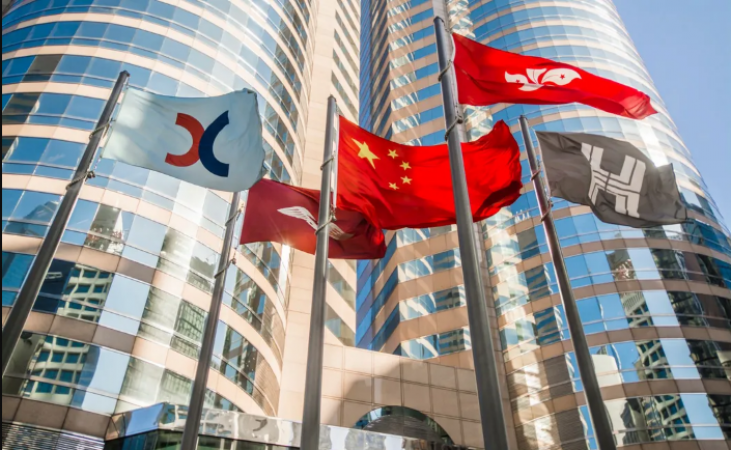
Hong Kong: After factory-gate prices in mainland China fell for the first time in nearly two years, Hong Kong shares fell, raising concerns about deflation as businesses lost pricing power. After Beijing announced additional industry support, the price of real estate increased.
As of 3.09 pm local time, the Hang Seng Index was down 1.9% for the second day at 16,244.95. Finally, the Shanghai Composite Index dropped 0.5%, while the Hang Seng Tech Index fell 2.7%.
BYD, a maker of electric vehicles, fell 5.2% to HK$185.90 and WuXi Biologics fell 6.1% to HK$43.95. Tencent Holdings fell 4% to HK$236, while Alibaba Group fell 2% to HK$65.75.
Also Read: New ship deliveries are expected to impact Chinese freight rates next year
Developer Country Garden jumped 15% to HK$1.66 and its rival Longfor climbed 4% to HK$13.94 after China expanded funding support to private companies, limiting losses.
The Bureau of Statistics reported in Beijing on Wednesday that factory-gate prices fell 1.3% for the first time in October 2020, while the market is expected to drop 1.5%. Consumer prices rose 2.1% in October, compared to the consensus estimate of 2.4%.
"We expect the downside to continue in the near term," according to Bruce Pang, chief economist and head of research at Jones Lang LaSalle in Hong Kong. With rising risks of deflation, weak domestic demand and easing export demand, China could "begin to engage in a fierce battle."
Shares lost steam this week, following a 13% rally in November that boosted Hong Kong's market capitalization by US$421 billion. As analysts see a subtle shift in policy tone in recent official comments, expectations that China will ease its strict zero-Covid policy have recently risen.
China's exports unexpectedly declined last month for the first time since May 2020, according to official data released earlier this week, as the resurgence of Covid-19 disrupted factory production and shipments and led to stricter lockdowns in the US and Europe. Monetary policy reduced external demand. Recently, the yuan fell to a 14-year low.
Also Read: Know what is the price of petrol and diesel from Delhi to UP today?
China's economy is about to experience demand-driven deflation, according to a note published earlier this month by Montreal-based BCA Research. Corporate profits and, consequently, share prices will be negatively impacted by the lack of economic recovery and the fall in producer prices. Beijing would allow the yuan to weaken even further to support its economy.
In trading in Shenzhen, Goertech fell 10% to 20.72 yuan from a daily range. A "major foreign customer" reportedly stopped placing orders from the company, which makes audio devices for Apple products. This is expected to reduce US$455 million in revenue this year, or 4.2% of annual sales in 2021.
On its first day of trading in Hong Kong, multiple Idea Cloud Holdings, which provides services for integrated marketing solutions, fell 6.1% to HK$1.84. Switch maker Dongnan Electronics in Shenzhen rose 45% to 30.23 yuan, while power tool maker Xinling Electrical rose 30% to 33.66 yuan.
Also Read: Palestinian Business tycoon is shot by British forces
At 9.77 yuan, Techvision Intelligent Technology in Beijing rose 22%.
Other important Asian markets were mixed. The Nikkei 225 in Japan declined 0.6%, while the Kospi index in South Korea gained 1.1% and the S&P/ASX 200 in Australia gained 0.6%.